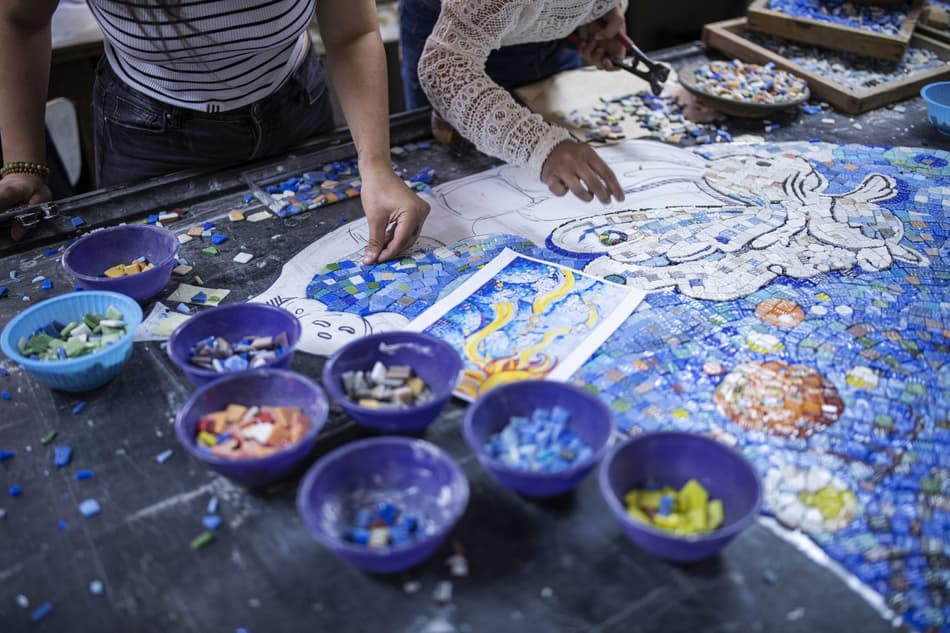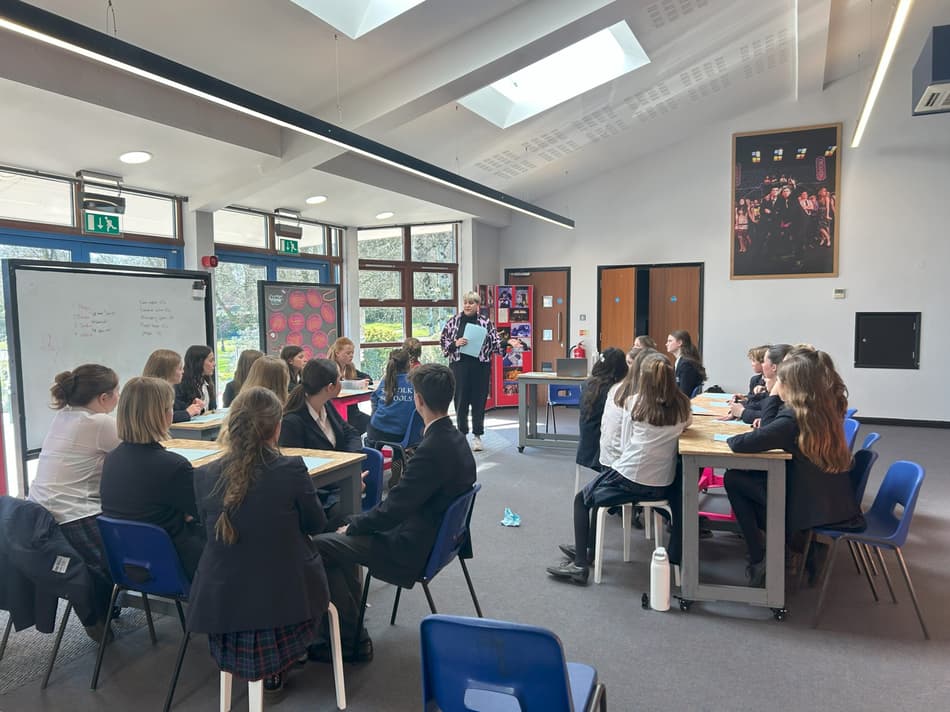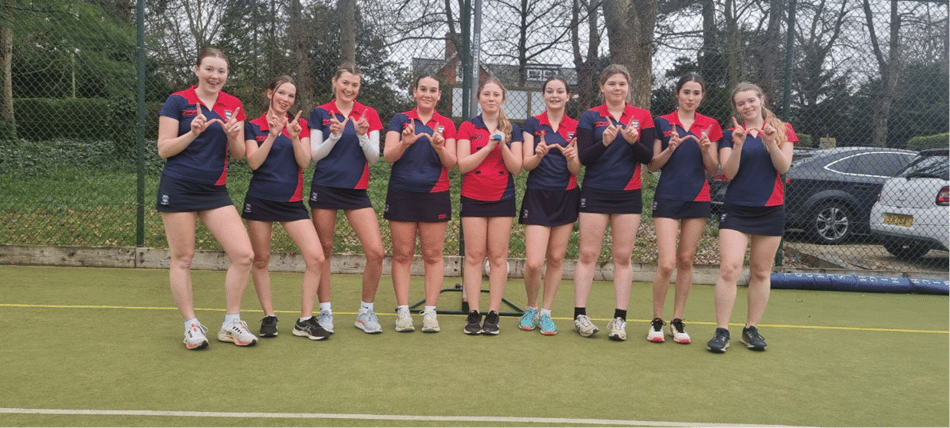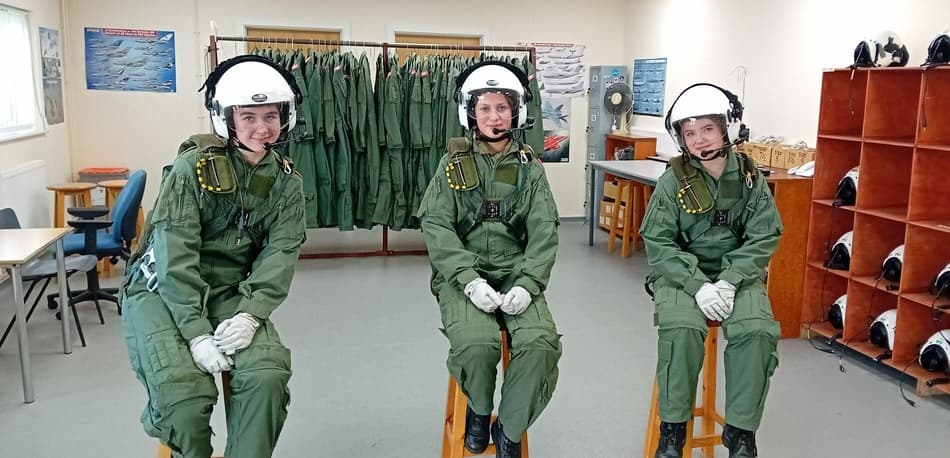Lemn Sissay
Lemn struck so many chords (not least in one marvellous poem on the difficulties of dating) with his audience – empathy being at the heart of his message. Empathy… and dysfunction rather surprisingly by contrast. There was poetry too, of course, woven effortlessly but so dynamically into a fabric of story and a stream of consciousness that was both joyful, difficult, and breathtakingly incomplete at times – no sentence quite finished before the next exploded from him. He spoke in the first moments of poetry being an expression of the thoughts in the back of his head, and the thoughts behind them, and them… He performed a perfect cameo of how they can crowd each other out, fighting for attention as they roll into and over each other. But his poems, and his reflections on his early life in particular, had a metre to them which arrested the scattergun in him (despite their own intrinsic energy and the energy he brought to them in performance) and offered a clarity that demanded our reaction. This wasn’t polite verse, but raw, or funny, or chilling, and very provocative. Forgiveness, and his own inspiration found in the depths of the unforgivable, were things he could talk about with a degree of experience that would have broken many of us. That poetry had offered him a place to live, and, in part, replace the family he was denied (with a cruelty that beggars our belief, or rather reaffirms our guilty knowledge of it and of a past now viewed as simultaneously ‘acknowledged’ and ‘rejected’ despite it being played out again and again in the present, dressed differently, but there nonetheless) is our good fortune. His honesty was overwhelming, but then that is how he sees poetry as well, given it is the thoughts at the back of one’s head. There is nothing more honest that one’s inner world. What should budding poets do? Never throw anything away. How should one seek to perform one’s own poetry? By reinhabiting one’s place and mind at its conception. Old poetry is the best memory of the way we were – better than a diary. But it is also the person unmasked. So poetry is not for the timid?… No.. that’s utterly wrong and I am sure Lemn would be infuriated if that was my conclusion. Poetry is for each of us, and importantly so: the better to understand ourselves and others, interaction and reaction. It may just be that not everyone will want to share.
Thank you, Lemn Sissay. This was an evening of genius.
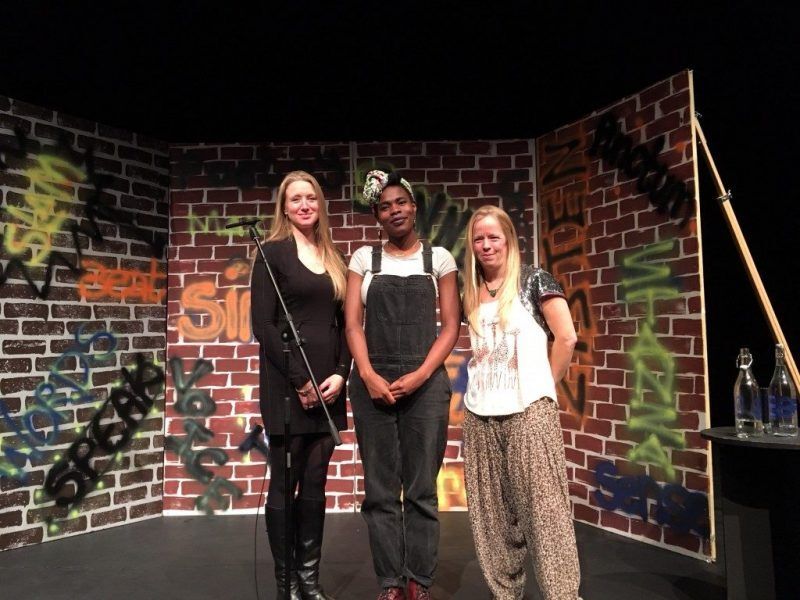
And then we were back for a second evening; one of contrast – both in itself and with its predecessor. Three poets – our host Amy Soapbox delighted us with, just in case we weren’t sure, an explanation of poetry. She offered a canvas as gloriously wide and high as one could conceive on which to paint in poetry the ideas that it might take a thousand words of prose to achieve. She set the stage for Rebecca Goss (Rachel to those who know her less well…) who described herself as a frustrated short story writer, but who offered us poems that told stories with such sparse honesty and compelling intensity that she seems to have achieved both: poet and prosaist in one. She talked of inspiration – the moment of knowing – but of the hard work and careful editing, increasingly so with experience, which follows. Don’t expect the words to pour unfettered and perfect, even if the idea itself comes free of difficulty. She talked of the risks and rewards of autobiography; her own life as backdrop or centre stage. The depth of emotion her poems developed as a result was astonishing, especially given their brevity in many cases. To be accelerated into her thoughts, her delights and her anguish with such immediacy was startling. Rebecca also talked of the pleasure of friendship, and female friendship in particular, the focus of workshops she had run that afternoon with our Sixth Formers; how conversation and sharing offers so much. And how friendship helps when things could not be harder to bear. Hers was a wonderful, warm, and almost private performance with her family at its heart. If every there was a demonstration of intimate honesty in art this was it.
Amy Soapbox’s introduction for the second half, a breathless tour de force of a paper world seen through the eyes of fellow poet Harry Baker, paved the way for Vanessa Kisuule, familiar to many from her performance at last year’s festival and this year’s Speech Day. Familiar, but as fresh as ever – right down to a poem just for us, written on the train today, and in defiance of Insta (and all its kind…). In defiance of competition, too – between girls, against difference, against parents and their always being right in the end (because they are) (even if it comes with the agony of train track plaits every Sunday). One poem was more familiar, however, but bears its repetition lightly: her rules for living. Not, she was keen to point out, her advice, though. Although there was a contradiction in an unwillingness to advise beyond telling us to do what we want, because we will anyway. She is a poet because that is what she is at the moment; she sees no constraints either in her writing or in her life. Whatever is right. Her advice? Just write… if you do it enough you’ll get better, and if you do it enough some of it will be good. I hope everyone was listening, because the need for immersion in poetry – or anything – seems central to its improvement and its value. I wonder how many of us will leave it till tomorrow to make a start. Vanessa didn’t, and her audience was grateful for that, as they were to all the performers, and particularly to Mrs Kneebone for the brilliant organisation and advertising to encourage so many of us to come in the first place and Mrs Davis whose gloriously innocent delight in her introduction of Lemn Sissay on the first evening, and her passion for poetry which has driven the festival, the workshops, and inspired so many in our community already, has captured our hearts. Thank you all.
Do we really have to wait another year?

